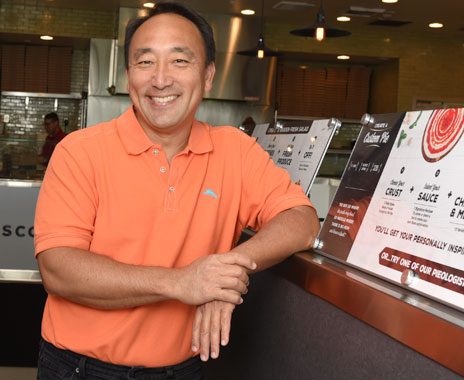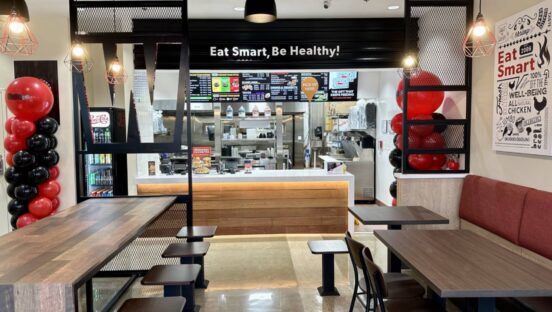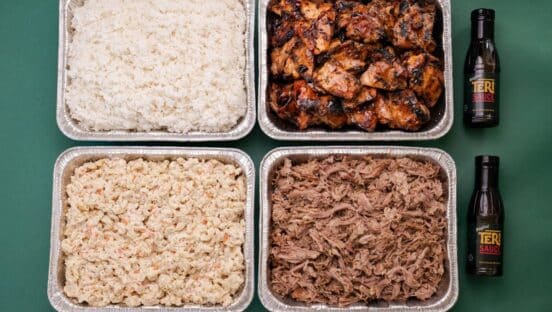When big restaurant chains get hungry for growth, the answer isn’t always unit expansion.
For some, the answer is to bring smaller restaurant companies into the fold through acquisition or investment. Popular at the beginning of the Millennium, this strategy has once again become attractive to large chains in a post-recession world in which the restaurant industry is growing.
In January, Panda Restaurant Group, operator of the 1,900-unit Panda Express quick-service Asian chain, purchased a minority interest in Pieology, the fast-growing, fast-casual pizza chain. Then, in February, Panda also bought an undisclosed interest in Just Salad, a fast-casual salad chain.
If this sort of thing has a familiar ring, it should. Over the past few years, Buffalo Wild Wings has also strategically invested in innovative fast-casual chains, in its case PizzaRev and R Taco.
Around the turn of the Millennium, McDonald’s bought then-tiny Chipotle and regional pizza chain Donatos with an eye on divesting interests beyond the burger. Ultimately, top executives felt, the outside ownership was forcing McDonald’s to take its eye off its iconic burger business, and the company unloaded both of them.
Similarly, Wendy’s bought the Mexican chain Baja Fresh back in 2002, then sold it at a huge loss less than five years later when the chain couldn’t quite figure out how to compete with Chipotle.
Experts say the key to making these kinds of investments worthwhile is thinking them through before the purchase—then being flexible enough to learn and adapt after.
“A large restaurant company needs to understand that their reputation is on the line with consumers and investors,” says Howard Gordon, an industry consultant and former Cheesecake Factory marketing chief. “There are cases that McDonald’s, Yum, and others have ventured into concepts that are not strategically correct for their brand.”
The word symmetry may be the single most overused word in the world of restaurant investing. But when a big chain purchases a small chain, that’s key. Just ask Carl Chang, founder of Pieology, whose 87-unit, customizable pizza chain recently attracted the interest of Panda, which is now a minority owner.
“Food has always played an important role in my family’s life,” says Chang, who has a long-time friendship with Andrew and Peggy Cherng, cofounders of Panda Express. “They’re simply trying to grow their business, but learn from ours as they go through a brand evolution. It’s very forward-thinking on their part.”
Well-thought-out investments between bigger restaurants and smaller chains that share similar goals can be successful for owners, investors, and consumers, Gordon says. Critical to the partnership, he adds, is that the larger restaurant company “needs to make sure it is almost flawless in the operations of its concept before engaging in outside investments.”
Just look at Buffalo Wild Wings. Even as it continues to grow and post impressive sales results, the high-octane sports bar and casual-dining chain has reached out over the past few years to expand through investments into several fast-casual concepts, with potentially more on tap. As it grows, its newest culinary offshoots are growing, too.
Its minority interest in PizzaRev, the fast-casual pizza chain, seems to be paying off; there are plans to nearly double the number of PizzaRev locations to about 55 by the end of 2016, says Kathy Benning, executive vice president and chief strategy officer for brand and business development at Buffalo Wild Wings.
Likewise, the company’s majority interest in Mexican fast-casual chain R Taco will help that brand nearly double in size by the end of the year to about 20 locations, Benning says.
“Not a day goes by that we’re not engaging in conversations with both chains,” she says.
Buffalo Wild Wings might not be done investing in smaller chains. Its stated plans are to partner with three to five emerging concepts. But the company intends to keep plowing ahead with its own growth, too, adding up to 100 new locations to its current 1,170 over the next year, she says.
There are benefits to investing in smaller chains beyond financial returns, Benning says. For example, there are cost efficiencies in all three chains working with the same vendors.
But she adds that Buffalo Wild Wings isn’t just investing in any old brand; there is a pretty high bar for consideration. “We look for brands that have a founder who is passionate about the brand, and who is interested in translating that passion across the country,” Benning says.
Being food-centric, alone, won’t cut it. “The chain also has to be experiential and fun and connect with people,” she says.







